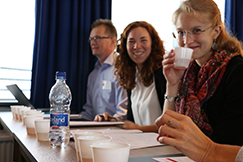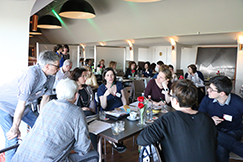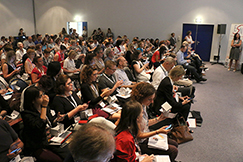Research
Moving the field forward through co-creation
Our research program captures the latest developments in sensory & consumer research that reflect the interests of ESN members and partners and more widely contribute to the knowledge in this diverse field. Our ESN Community collaboratively brainstorm innovative research ideas through co-creation, leveraging the expertise and experience from academia, research institutes, sensory agencies and industry.
We conduct research across multiple countries and use cutting edge statistical analysis and data capture software solutions. Our members and partners are at the forefront of sensory and consumer research. By combining resources we are able to fund research projects that any one individual organisation might not be able to on its own. We can explore topics where a successful outcome is not always guaranteed, thus sharing the risk together. But even an unexpected result is positive as research is about learning and moving forward.
We always think about the practical applications of research and we hold workshops and other discussion sessions to explore how results can be used in practice. Our members and partners always have first access to our research findings, but we are also active in sharing through publishing in the scientific literature, presenting at conferences, ESN videos and our presence on social media.
“The research process at ESN is quite amazing. We develop the ideas together, and – through intensive discussions – come up with study designs that allow us to precisely answer the questions we need to address. You always feel the support from the ESN members, and that helps us move the study further along and overcome problems. At the end, we hold a publication in our hands, and are already contemplating the next research project.” (Lise Dreyfuss, SAM international, ESN Research Chair)
examples of our joint research

Wellbeing
A study spanning five continents shows that people the world over associate food and feeling good with ’tastes good’. However, when they think about the future, health and nutrition gain in salience. This reality could help change the direction of health programs and make them more functional and efficient. more
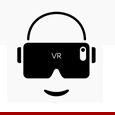
The ESN immersive project
The European Sensory Network ESN has conducted a research program to evaluate the role of virtual and immersive reality in sensory testing. The results show that preferences in the lab do not necessarily translate to the real or virtual world. The upshot: Immersive contexts can be meaningfully integrated into sensory testing. They afford reliable and economical substitutes and additions to real-life testing. more

Temporal Drivers of Liking
Asking consumers to identify the dominating sensations during the eating process, while simultaneously asking them to indicate how much they like what they perceive, could help sensory analysts to better customize foods according to consumers' wishes. This new method, Temporal Drivers of Liking (TDL), is an extended version of the popular Temporal Dominance of Sensations (TDS), and could become part of the growing group of Rapid Sensory Profiling Methods. more

Proficiency Testing in Sensory Analysis
- Development of International Guidelines, within the frame of the EU-funded project “Profisens”
- Development of reference samples for Proficiency Testing
e.g. systematically varied samples of chocolate drinking powder - Provision of regular Proficiency Tests more
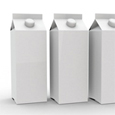 Calibration methods
Calibration methods
Development of reference samples and calibration procedures for the sensory testing of food contact materials - paper and board (EU-funded project “Calibsensory”) more
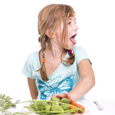 Healthy Lifestyle in Europe in Europe by Nutrition in Adolescence
Healthy Lifestyle in Europe in Europe by Nutrition in Adolescence
(EU project "HELENA" No. FOOD-CT-2005-007034)
The main goals of the project are:
- To develop and harmonise innovative methods for the assessment of lifestyle habits of adolescents across Europe with special focus on diet, nutrition and physical activity.
- To assess dietary and physical activity patterns as well as nutritional status among European adolescents.
- To investigate knowledge and attitudes towards nutrition and physical activity among adolescents and to establish the main determinants of their food choice and preference.
- To describe regional, cultural, social, genetic and gender differences and similarities across Europe.
- To identify adolescents at risk of eating disorders, dislipidemia, obesity and/or type 2 diabetes.
- To develop a number of healthy foods and identify marketing strategies for consumers, in order to improve the diet of adolescents.
- To develop a Lifestyle Education Programme and test its efficacy for improving adolescents’ health.
For further information see http://www.helenastudy.com.
 Healthy Ageing
Healthy Ageing
How Changes in Sensory Physiology, Sensory Psychology and Socio-Cognitive Factors Influence Food Choice
(EU project “Health Sense” No. QlK1-CT-1999-00010)
This study is aimed at
- generating scientific data on the relationship between sensory physiology and food preferences
- studying the degradation of sensory capability in the ageing and determining how it affects their food preferences and general well-being
- understanding how older people deal with issues related to food and food choice
- publishing the results in a format that can be used by policy makers, the food industry and consumer organisations who support the elderly
For further information see http://cordis.europa.eu/projects/rcn/51655_en.html
 Coffee study
Coffee study
This inter-laboratory study aimed at clarifying the question, as to whether
- descriptive and profiling data on a product obtained in one country are comparable to the data of panels from another country, even if the panels use different attributes and different languages and can these data then be related to consumer preferences in other countries
- the consumer preferences for coffee are the same for all countries
A full report of the results has been published under the title "A European Sensory and Consumer Study: A case study on coffee".(PDF)
